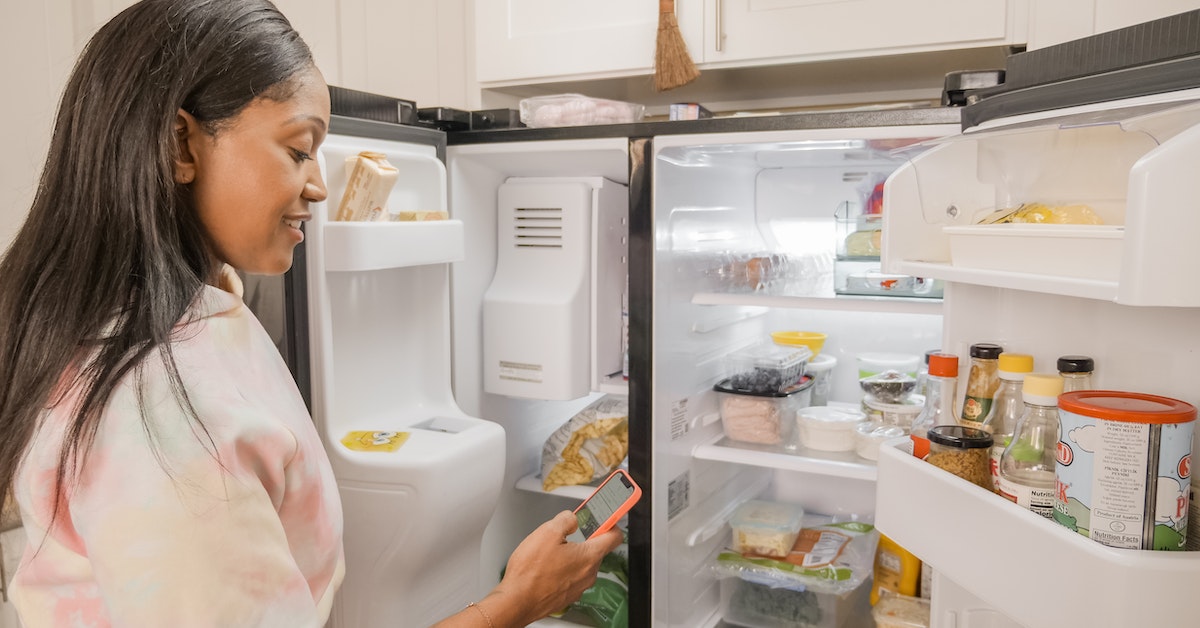What You Should And Shouldn’t Keep in Your Fridge Leave a comment
Do you have a fridge full of food you can’t remember when you bought it?
Are you ever unsure about which foods should and shouldn’t be kept in the refrigerator? Well, worry no more!
This article will provide an all-encompassing guide on what foods should be stored in the fridge and which should stay out.
Foods you should refrigerate
A. Dairy products
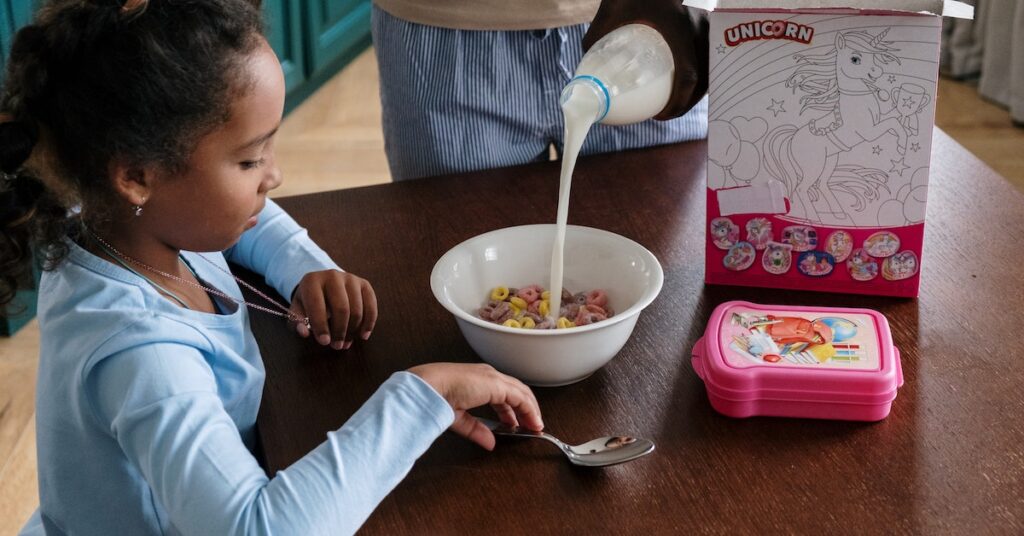
Milk is a staple in most households and it’s important to store it properly.
Keep milk in the fridge at all times, as room temperature can cause bacteria growth.
Make sure to store milk on the shelves, rather than on the door where temperatures fluctuate more. If you have leftover milk from an open container, use it within 5-7 days or freeze for later use.
Cheese is another dairy product that needs proper refrigeration.
Hard cheeses like cheddar and Parmesan can be stored for longer periods of time in the fridge, while soft cheeses like brie and feta should be consumed within a week of opening.
It’s important to wrap cheese tightly in plastic wrap or aluminum foil to prevent moisture loss and avoid taking on unwanted flavors from other foods.
Yogurt is a popular breakfast staple but it too requires proper storage techniques. Store yogurt containers upright on a shelf in the fridge instead of laying them down on their sides.
This prevents any excess liquid from separating out and settling at the bottom of the container which could alter its taste over time.
Yogurt typically has a shelf life of about two weeks after purchase so make sure you enjoy it before it goes bad!
B. Meat and poultry
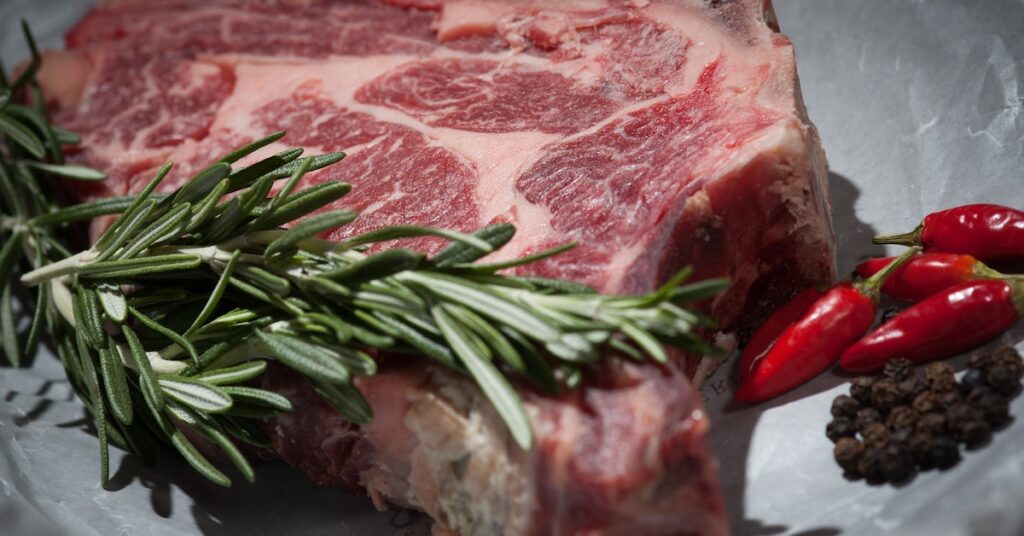
Raw meat, cooked meat, and poultry are staples in many people’s diets.
However, it can be tricky to know whether or not they should be stored in the fridge.
For raw meat, it is essential that it is kept refrigerated to prevent the growth of harmful bacteria such as salmonella and E.coli.
It should be kept below 40°F and placed on the fridge’s bottom shelf to prevent juices from dripping onto other foods.
Cooked meat can also be stored in the fridge but should only be left for up to four days before being consumed or thrown away.
This is because bacteria can still grow on cooked meats if they are not stored properly.
To keep them fresh for longer periods, consider freezing them instead.
Finally, when storing poultry in the fridge, make sure it is wrapped tightly and placed on a lower shelf so that any juices do not drip onto other food items.
C. Eggs
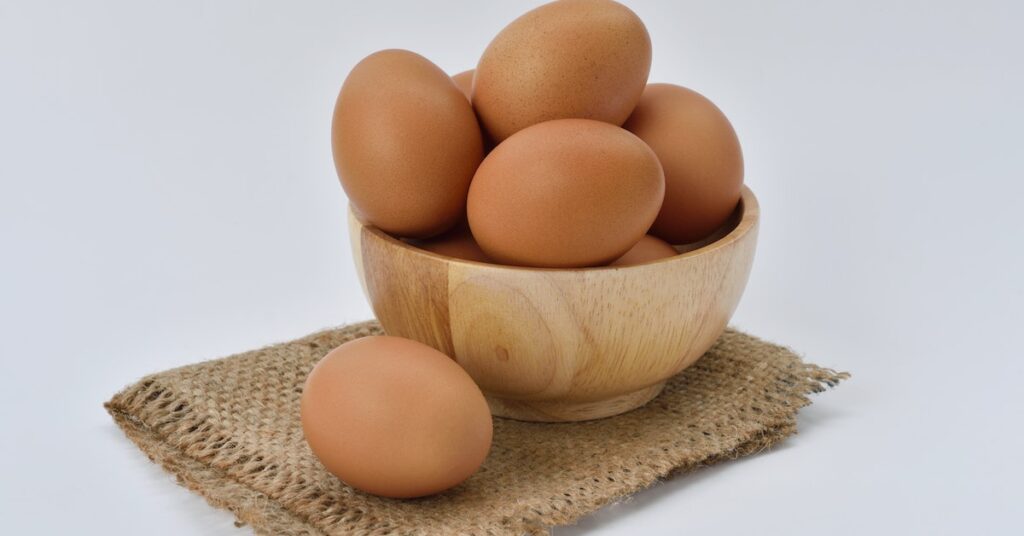
Raw eggs are a staple ingredient in many recipes and can be found in most refrigerators. However, it’s important to note that keeping raw eggs in the fridge is crucial for food safety.
Raw eggs can potentially carry harmful bacteria such as Salmonella, which can cause food poisoning. Keeping them in the fridge slows down bacterial growth and helps to ensure their freshness.
On the other hand, hard-boiled eggs may not necessarily need to be kept in the fridge all of the time.
If they are still in their shells, they can be safely stored at room temperature for up to two hours.
After that time frame has passed, it’s recommended that you refrigerate them promptly. Once peeled, hard-boiled eggs should always be kept in an airtight container inside your refrigerator for up to one week.
Overall, when it comes to storing eggs properly, it’s best practice to keep raw ones chilled at all times while being mindful of how long you leave cooked ones out on your countertop before consuming or refrigerating them.
D. Certain fruits and vegetables
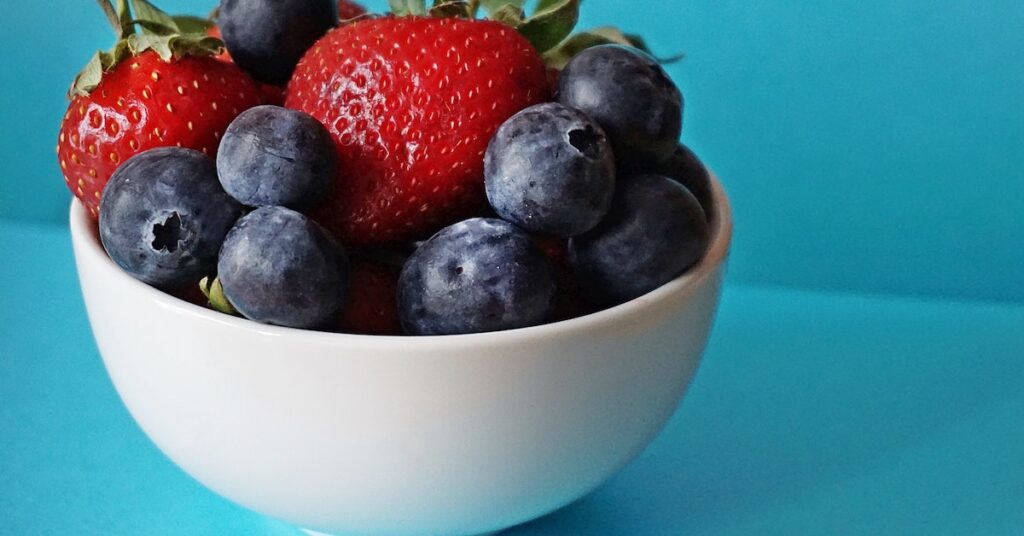
Berries are delicate fruits that can easily spoil if stored in the fridge.
It is best to keep them at room temperature until they ripen, and then move them to the refrigerator to prolong their shelf life.
However, make sure not to wash berries until you’re ready to eat or use them in cooking, as excess moisture can cause them to mold quickly.
Leafy greens and fresh herbs also require special attention when it comes to storing vegetables in the fridge.
These items should be wrapped loosely in damp paper towels before being placed inside a plastic bag with small holes for ventilation.
This will help prevent wilting and preserve their freshness for longer periods.
When it comes to cut fruits and vegetables, refrigeration is a must as they tend to spoil quickly when left at room temperature.
Don’t forget to store these items in air-tight containers or plastic bags with holes for ventilation.
Additionally, keep an eye out for any signs of spoilage such as discoloration or unpleasant odor – if detected, discard immediately!
Foods you shouldn’t refrigerate
A. Certain fruits and vegetables
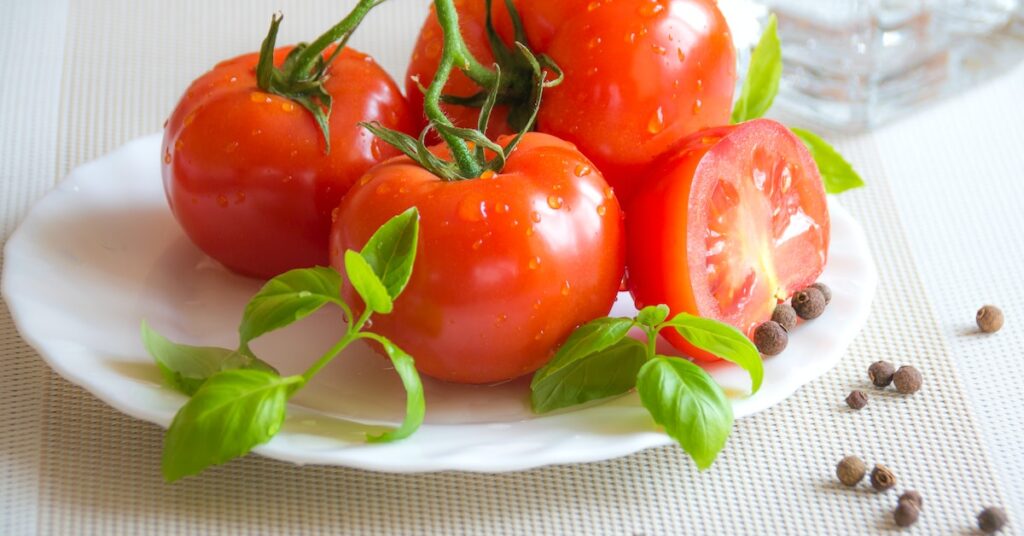
Tomatoes are one of the most commonly used vegetables in a variety of dishes.
However, they should not be stored in the fridge.
Refrigerating tomatoes can cause them to lose their natural flavor and texture, making them mushy and less appealing to eat.
Instead, store them at room temperature on a countertop or windowsill.
Avocados are another fruit that should not be placed in the fridge until they are ripe.
Placing unripe avocados in the fridge can slow down their ripening process and make them difficult to use when needed.
Once ripe, avocados can be kept in the fridge for a few days if necessary.
Bananas should also not be stored in the fridge unless they are already ripe or overripe.
Placing unripe bananas in the fridge can hinder their ripening process while placing already ripe bananas there will accelerate it too much causing black spots all over its skin.
They should instead be kept at room temperature on a countertop until they reach desired ripeness before consuming or storing them elsewhere such as your pantry, where you protect them from spoilage by other fruits around it.
B. Bread and baked goods

Bread and baked goods are some of the foods that shouldn’t be refrigerated.
This is because bread tends to become stale and dry when kept in the fridge, which makes it difficult to enjoy.
In addition, refrigeration causes bread to lose its natural flavor and texture, affecting its overall taste.
Baked goods such as cakes, pastries, and muffins should also not be kept in the refrigerator unless they have perishable ingredients like cream or custard.
Refrigerating these types of baked goods can cause them to become soggy due to moisture buildup.
Furthermore, the cold temperature can alter their texture and make them less desirable.
To fully enjoy these food items at their best quality possible, it is recommended that you store them at room temperature in an airtight container or wrapped tightly with plastic wrap.
C. Potatoes and onions
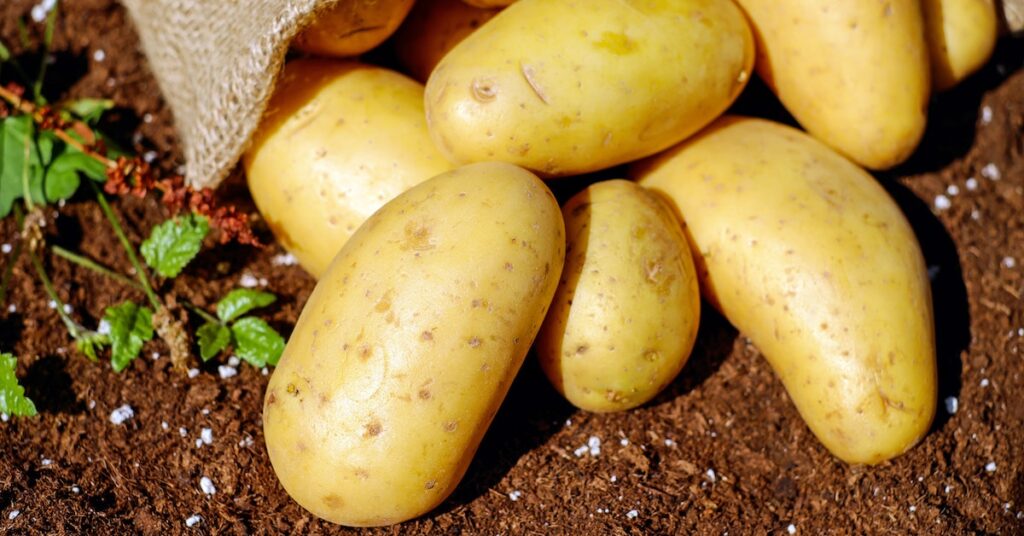
These vegetables thrive better in a cool, dry, and well-ventilated environment that is free from moisture.
Refrigerating them can actually cause the potatoes to become gritty and onions to turn mushy.
Potatoes are high in starch content, which means they can easily develop a sweet taste if exposed to cold temperatures.
The cold air inside your refrigerator turns the potato’s starch into sugar at an accelerated rate.
As a result, this causes them to spoil faster than usual. Additionally, refrigeration can cause potatoes to sprout prematurely.
Onions have multiple layers that work together as protective barriers against environmental factors such as light and moisture.
When they are stored in damp environments like refrigerators, it speeds up their decay process causing them to rot quickly or develop mold on their outer layers.
It’s essential to keep these veggies stored separately from each other at room temperature in a dark place with proper ventilation for longer shelf-life and optimal quality of taste.
Tips for storing food in the fridge
A. Proper temperature
The ideal temperature for your refrigerator is between 35-38°F (1.7-3.3°C).
Your fridge should not be too cold or too warm as this can lead to spoilage and bacterial growth on the food.
To make sure that you’re keeping your foods at an optimal temperature, invest in a thermometer and place it in the middle of your fridge.
This will give you a more accurate reading of the temperature inside.
When storing different types of foods in the fridge, keep them separate to prevent cross-contamination.
Raw meats and seafood should be stored on the bottom shelf while cooked foods go on higher shelves. Fruits and vegetables can also have their own designated drawers as well.
B. Correct storage containers
Glass and plastic containers with tight-fitting lids are ideal for storing leftovers, fruits, vegetables and other perishable items in the fridge.
These containers help maintain freshness and prevent spoilage by keeping out air and moisture.
However, it’s important to note that some foods should not be stored in the fridge at all.
Bananas, tomatoes, avocados and onions are just a few examples of foods that should be kept at room temperature to ensure they ripen properly.
Storing these items in the fridge can actually make them spoil faster or lose their flavor.
In addition to using appropriate storage containers and knowing which foods belong in the fridge versus on the counter, it’s also important to regularly clean out your refrigerator.
This helps prevent cross-contamination of bacteria between different types of food and ensures that your food stays fresh as long as possible.
C. Labeling and organizing
Labeling and organizing the contents of your fridge is crucial in ensuring that you don’t keep items that should not be there.
Certain foods, like tomatoes, potatoes, onions, and garlic, do not need to be stored in the refrigerator.
Keeping them in there will only cause them to spoil faster or lose their flavor.
Labeling these items can remind you and others in your household where they should go.
When organizing your fridge, keep food safety guidelines in mind.
Raw meats should always be kept on the bottom shelf to prevent any drips from contaminating other foods.
Similarly, cooked food should also be stored on a separate shelf away from raw meat juices.
Additionally, grouping similar items together makes it easier for you to find what you need quickly while making room for new groceries.
Conclusion
To recap, some of the foods that you should keep in your fridge include dairy products like milk and cheese, raw meat, fish, seafood, eggs (if not consumed within one week), fruits like berries or grapes (if washed before storing), and vegetables such as leafy greens or broccoli.
On the other hand, some foods that don’t require refrigeration are honey, bread, potatoes, onions garlic among others.
In summary, following proper food storage guidelines is crucial to ensure your family stays healthy.
Always store perishable items at their recommended temperatures and throw away any food that has gone bad.
Following these recommendations mentioned earlier in this article will help increase the shelf-life of various groceries while ensuring they remain fresh for consumption when needed.
Related:

